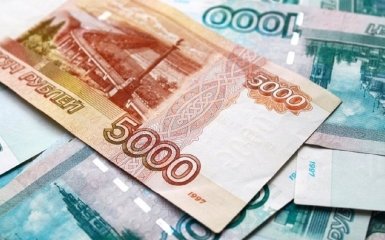The Russian Federation's war against Ukraine negatively affected the prospects of Russia's economy. Imports grew faster than exports, which contributed to the ruble's depreciation since the beginning of the war and was the driving force behind inflation.
What is happening to Russia's economy
The intelligence notes that Russia increases defence spending at the expense of other areas, and the risk of overheating the Russian economy likely remains.
As the summary emphasised, the Central Bank of Russia raised the interest rate by one basis point to the new base rate of 16%. This is the fifth increase since the current hike cycle began in July 2023, when the base rate was 6.5%.
Inflation in Russia continued to accelerate at the end of 2023, rising to 7.5% year-on-year in November from 6.7% in October, according to British intelligence.
According to estimates of the Russian statistical service, inflation in 2023 will be 7.4%, almost twice the central bank's target.
Military budget of the Russian Federation
In 2023, Moscow spent over $100 billion on military purposes, or almost a third of its total spending.
In 2024, the Russian authorities intend to allocate almost a third of all costs to maintain the army and the defence-industrial complex.
In one year, 10.775 trillion rubles ($121 billion at the current rate of the Central Bank of the Russian Federation) will be spent under the heading "national defence," which is 70% more than in 2023.
Another 3.338 trillion rubles, according to the law on the budget, will be spent by the government under the article "national security", which includes the budgets of the Ministry of Internal Affairs, the Russian Guard, special services and the FSVP system. Thus, almost 40% of the budget will be spent on power structures.

